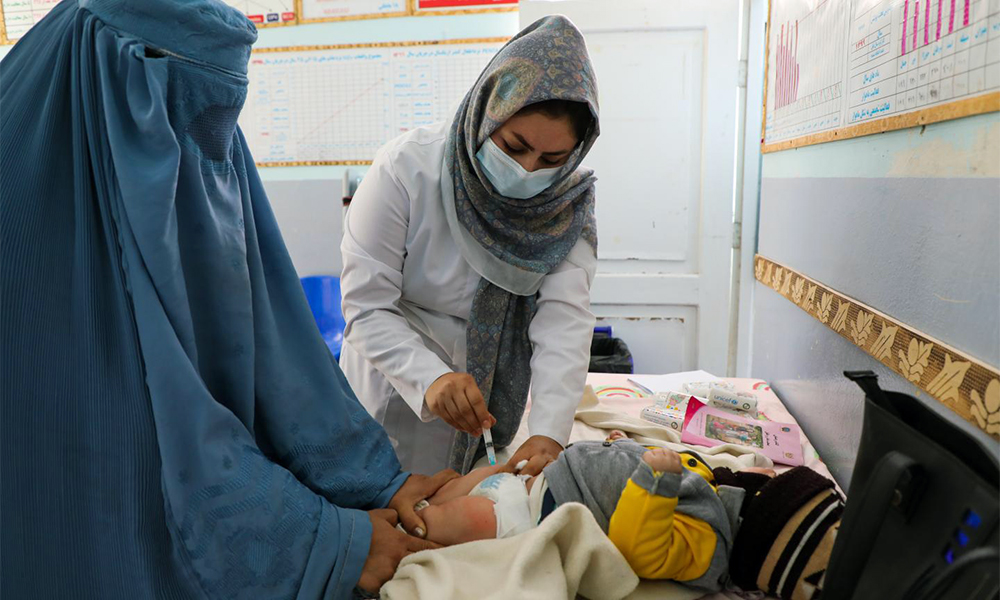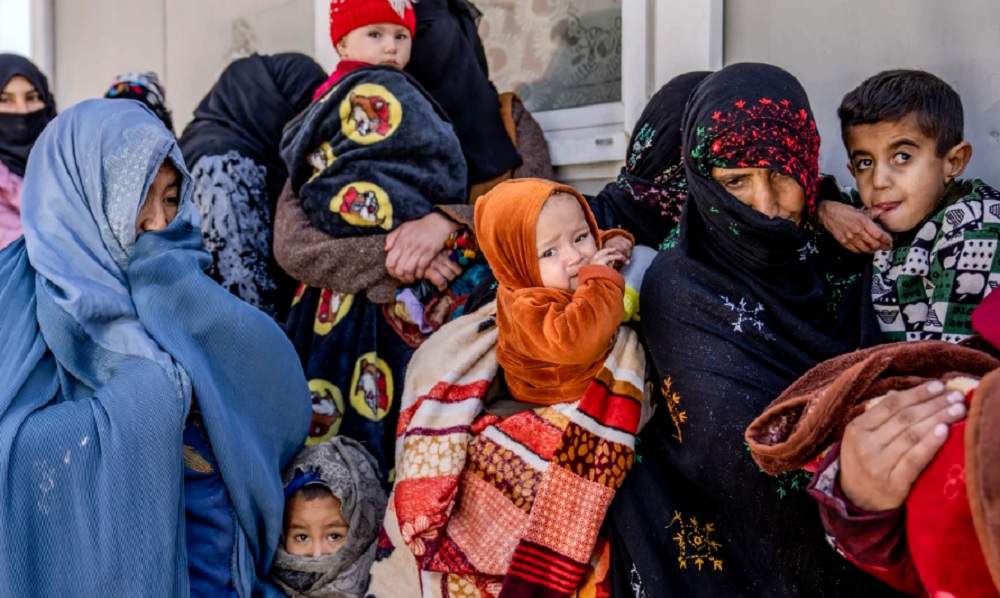Health
UN needs $500 million to provide health services in Afghanistan

The United Nations Office for the Coordination of Humanitarian Affairs (UNOCHA) has said that about $500 million is needed to provide health services in Afghanistan this year.
UNOCHA said the lack of investment in life-saving health services will lead to an increase in the deaths of the most vulnerable people in the country.
“This year, $449.9 million is needed to help 15.6 million people with essential health care services,” OCHA said in a statement.
According to the estimate, the number of people in need of health services in Afghanistan totals 17.6 million people.
This comes after the World Health Organization (WHO) recently said Afghanistan has the highest maternal mortality rate in Asia with 638 deaths per 100,000 live births.
Health
Balkh health officials report sharp increase in number of cancer patients

Balkh Public Health Department officials say there has been a significant increase in the number of patients with cancer in the province.
“In 1401, about 2,613 OPD (out patient department) cases were registered with us. In 1402, these figures were 4,912 cases,” said Ehsanullah Kaliwal, the head of the oncology department at Balkh Regional Hospital.
Some doctors say genetic factors, environmental pollution, arbitrary use of medicines, and excessive consumption of meat were reasons for the sharp increase.
One doctor said cancer was also hereditry.
However, a large percentage of cancer patients in Balkh have stomach cancer. Many of them have appealed for the government to improve treatment facilities.
According to health officials, in the first month of this solar year (April), 423 cancer patients visited this hospital for treatment.
Health
Majority of Afghans with mental disorders are women: officials

Based on last year’s data, 52 percent of people with mental disorders in Afghanistan are women, the Ministry of Public Health said.
However, after the Islamic Emirate took over the country and with the improvement of nationwide security and the provision of better health services, mental disorders have decreased, the ministry said.
“Overall, the mental security of men and women in Afghanistan is not ensured and their mental security is disturbed. According to the figures shared with us, in 2023, 52 percent of the visitors for mental disorders were women,” said Sharaft Zaman Amarkhil, the spokesperson of the Ministry of Public Health.
“Generally speaking, we can say that compared to the past, the instances of mental illnesses have decreased,” he added.
People suffering mental disorders mostly refuse to share their problem, willingly or unwillingly.
“There are many problems at home; We are poor. I finished school, but didn’t find any job,” Ansar, a mentally ill person, said.
According to the World Health Organization (WHO), half of Afghanistan’s population suffers from mental distress.
Factors such as unemployment, poverty, domestic violence, ban on girls’ and women’s education and work, and drugs are said to be key contributors to mental distress.
Health
Over 1 million women in Afghanistan malnourished last year: WFP

A total of 1.2 million women in Afghanistan were malnourished last year, the U.N. World Food Programme (WFP) said on Thursday.
Mona Shaikh, head of nutrition at WFP Afghanistan, said that the number of malnourished women is expected to increase this year.
On malnourished children, she said that their number will reach 3 million this year, but WFP will be able to assist only 1.6 million of them.
WFP warned that after foreign assistance cuts last year, it saw a rise in children’s admissions to malnutrition clinics in Afghanistan.
More than 23 million people are in need of humanitarian assistance in Afghanistan this year, according to the United Nations. Over half of them are children.
-

 Sport4 days ago
Sport4 days agoACL fever grows as fixtures finalized
-

 World4 days ago
World4 days agoUS will not take part in any Israeli retaliatory action against Iran
-

 Latest News4 days ago
Latest News4 days agoOver 50 people dead in traffic accidents over Eid
-

 Latest News4 days ago
Latest News4 days agoUS identifies Kabul airport suicide bomber
-

 Latest News4 days ago
Latest News4 days agoGood rains enable DABS to increase power production in Kabul
-

 Business4 days ago
Business4 days agoAfghanistan-Kazakhstan chamber of commerce opens in Herat
-

 World3 days ago
World3 days agoIsraeli military vows response to Iran attack as calls for restraint mount
-

 Latest News3 days ago
Latest News3 days agoPakistani police give Afghans in Balochistan one day to leave
























